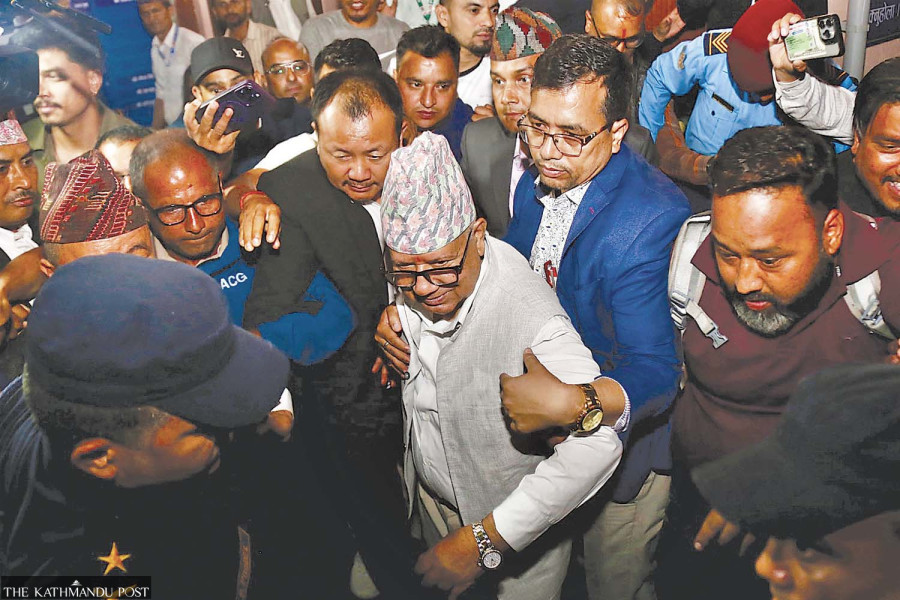National
Ex-prime minister Nepal granted bail in Patanjali land scam
Special Court seeks Rs3.5 million. CIAA wants 14-year jail and Rs185.85 million recovered.
Post Report
The Special Court on Wednesday decided to release CPN (Unified Socialist) chair and former prime minister Madhav Kumar Nepal on Rs3.5 million bail after conducting a detention hearing in connection with the high-profile Patanjali land scam case. The hearing lasted nearly three hours. The final outcome will be determined through further proceedings, the court said.
Nepal, who appeared before the court earlier in the day, gave his statement until 2pm. The detention hearing began immediately afterwards, with both the prosecution and defence presenting their arguments on whether the former prime minister should be taken into custody, released on bail, or freed on an ordinary date.
The Commission for the Investigation of Abuse of Authority (CIAA) has accused Nepal of facilitating the illegal sale of government-exempt land to Patanjali Yogpeeth and Ayurveda Company Nepal during his tenure as prime minister from May 25, 2009 to February 6, 2011. The anti-graft body has sought a prison sentence of 10 to 14 years and recovery of Rs185.85 million in damages and fines.
Senior Advocate Sushil Pant, hired by the CIAA, led the prosecution, which also included government attorneys Mohan Sagar Basyal, Bhagawati Devi Gautam, Umakanta Poudel, and Gyan Prasad Bhusal.
Pant argued that the Cabinet decision enabling the land transaction constituted corruption and should not exempt Nepal from legal accountability.
Pant responded to two key questions posed by the court–whether the CIAA can prosecute a policy-level Cabinet decision, and whether Nepal’s role caused harm to government property as the land in question had not been officially nationalised. Pant contended that it was not a policy decision, and that the land swap effectively caused a loss to the government as the land beyond ownership ceiling was meant to be compulsorily nationalised, thereby resulting in a loss.
Pant stressed that Nepal should be held in custody during the trial.
The defence, led by Senior Advocate Shambhu Thapa, challenged the CIAA’s legal standing in the case, arguing that independent lawyers cannot represent the prosecution when the charge sheet specifies government attorneys.
Thapa cited precedent from 2003 in which a similar land exemption decision was upheld by the Supreme Court and claimed the charges against Nepal were politically motivated and legally baseless.
“How can there be a government loss under Section 17 of the Corruption Control Act when the land never belonged to the government in the first place?” Thapa questioned. “Is Madhav Nepal a criminal who needs to be remanded in custody?”
Other defence lawyers, including Khamma Bahadur Khati, Raman Shrestha and Gobinda Bandi, supported the claim that the Cabinet’s decision was policy-driven and beyond the CIAA’s jurisdiction.
Despite over 50 lawyers registering to defend Nepal, only a handful argued during the hearing. Defence counsel later requested the court to consider all arguments submitted on behalf of the legal team to avoid unnecessary delays.
The bench hearing the case comprised judges Tej Narayan Singh Rai, Ram Bahadur Thapa, and Bidur Koirala. While granting bail, the court has cited Nepal’s then role and position.
The court, after completing the statement and detention hearing, ordered Nepal’s release on a bail amount of Rs3.5 million.




 10.12°C Kathmandu
10.12°C Kathmandu














